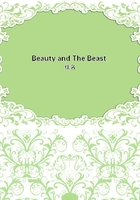
第23章 THE STRANGE FRIEND.(5)
By and by reports of certain of these performances were brought to the notice of the Londongrove Friends, and, with the consent of Henry Donnelly himself, De Courcy received a visit of warning and remonstrance. He had foreseen the probability of such a visit and was prepared. He denied none of the charges brought against him, and accepted the grave counsel offered, simply stating that his nature was not yet purified and chastened; he was aware he was not walking in the Light; he believed it to be a troubled season through which he must needs pass. His frankness, as he was shrewd enough to guess, was a scource of perplexity to the elders; it prevented them from excommunicating him without further probation, while it left him free to indulge in further recreations.
Some months passed away, and the absence from which Henry Donnelly always returned with a good supply of ready money did not take place. The knowledge of farming which his sons had acquired now came into play. It was necessary to exercise both skill and thrift in order to keep up the liberal footing upon which the family had lived; for each member of it was too proud to allow the community to suspect the change in their circumstances. De Courcy, retained more than ever at home, and bound to steady labor, was man enough to subdue his impatient spirit for the time; but he secretly determined that with the first change for the better he would follow the fate he had chosen for himself.
Late in the fall came the opportunity for which he had longed. One evening he brought home a letter, in the well-known handwriting.
His father opened and read it in silence.
"Well, father?" he said.
"A former letter was lost, it seems. This should have come in the spring; it is only the missing sum.""Does O'Neil fix any time?"
"No; but he hopes to make a better report next year.""Then, father," said De Courcy, "it is useless for me to wait longer; I am satisfied as it is. I should not have given up Margaret in any case; but now, since thee can live with Henry's help, I shall claim her.""MUST it be, De Courcy?"
"It must."
But it was not to be. A day or two afterwards the young man, on his mettled horse, set off up the Street Road, feeling at last that the fortune and the freedom of his life were approaching. He had become, in habits and in feelings, one of the people, and the relinquishment of the hope in which his father still indulged brought him a firmer courage, a more settled content. His sweetheart's family was in good circumstances; but, had she been poor, he felt confident of his power to make and secure for her a farmer's home. To the past--whatever it might have been--he said farewell, and went carolling some cheerful ditty, to look upon the face of his future.
That night a country wagon slowly drove up to Henry Donnelly's door. The three men who accompanied it hesitated before they knocked, and, when the door was opened, looked at each other with pale, sad faces, before either spoke. No cries followed the few words that were said, but silently, swiftly, a room was made ready, while the men lifted from the straw and carried up stairs an unconscious figure, the arms of which hung down with a horrible significance as they moved. He was not dead, for the heart beat feebly and slowly; but all efforts to restore his consciousness were in vain. There was concussion of the brain the physician said. He had been thrown from his horse, probably alighting upon his head, as there were neither fractures nor external wounds. All that night and next day the tenderest, the most unwearied care was exerted to call back the flickering gleam of life. The shock had been too great; his deadly torpor deepened into death.
In their time of trial and sorrow the family received the fullest sympathy, the kindliest help, from the whole neighborhood. They had never before so fully appreciated the fraternal character of the society whereof they were members. The plain, plodding people living on the adjoining farms became virtually their relatives and fellow-mourners. All the external offices demanded by the sad occasion were performed for them, and other eyes than their own shed tears of honest grief over De Courcy's coffin. All came to the funeral, and even Simon Pennock, in the plain yet touching words which he spoke beside the grave, forgot the young man's wandering from the Light, in the recollection of his frank, generous, truthful nature.
If the Donnellys had sometimes found the practical equality of life in Londongrove a little repellent they were now gratefully moved by the delicate and refined ways in which the sympathy of the people sought to express itself. The better qualities of human nature always develop a temporary good-breeding. Wherever any of the family went, they saw the reflection of their own sorrow; and a new spirit informed to their eyes the quiet pastoral landscapes.
In their life at home there was little change. Abraham Bradbury had insisted on sending his favorite grandson, Joel, a youth of twenty-two, to take De Courcy's place for a few months. He was a shy quiet creature, with large brown eyes like a fawn's, and young Henry Donnelly and he became friends at once. It was believed that he would inherit the farm at his grandfather's death; but he was as subservient to Friend Donnelly's wishes in regard to the farming operations as if the latter held the fee of the property. His coming did not fill the terrible gap which De Courcy's death had made, but seemed to make it less constantly and painfully evident.